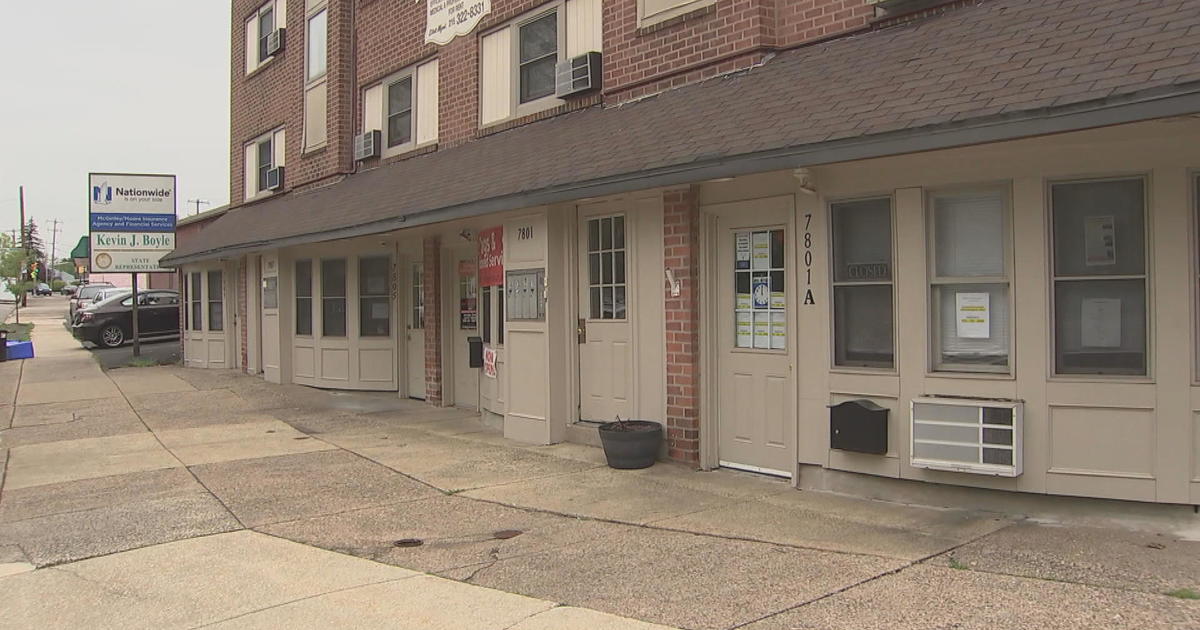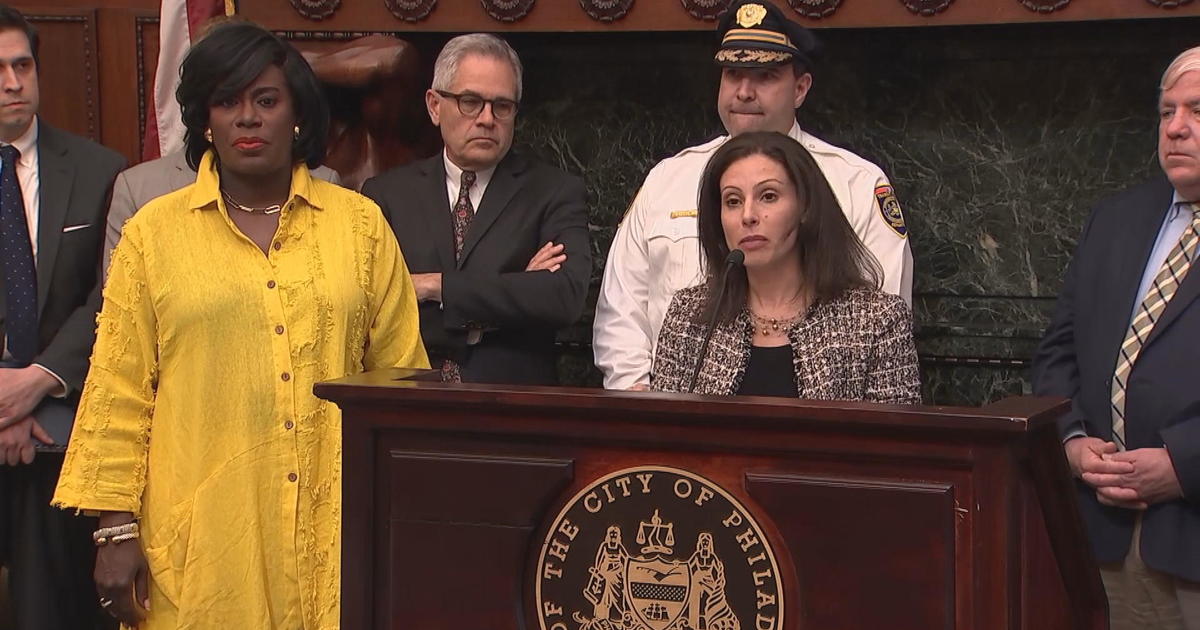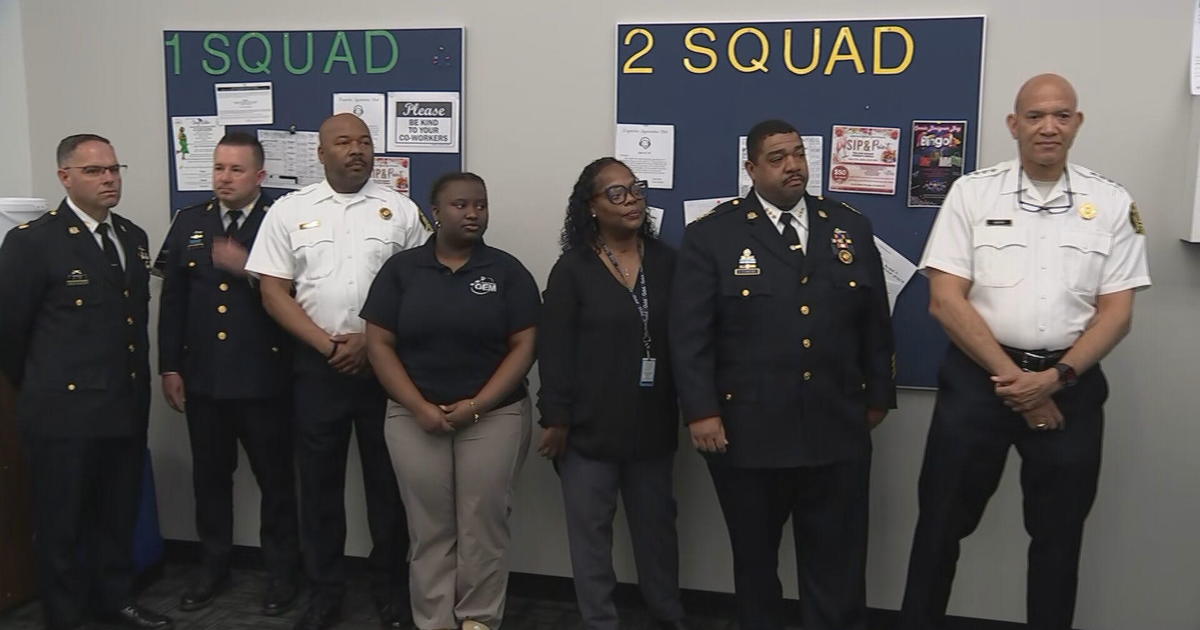Philadelphia Joins Lawsuit Blaming Opioid Manufacturers For Health Crisis
PHILADELPHIA (CBS) -- Philadelphia has joined a growing list of state and local governments suing opioid manufacturers for the costs of an addiction epidemic, charging "false and deceptive" marketing practices "created the public health and safety crisis."
The city is seeking an injunction to stop the companies from spreading false information about the effectiveness and addictiveness of painkillers and require that they pay for treatment and public awareness programs.
"City agencies have incurred tremendous and avoidable costs trying to combat this crisis and because it is our duty to protect the public from further harm, I believe we have no other choice but to file this lawsuit," said City Solicitor Sozi Tulante in announcing the filing.
Defendants include Allergan, Teva, Endo, Purdue, Johnson & Johnson and several others which those five have acquired.
2 Charged With Operating Multi-State Crystal Meth Ring Through US Postal Service
All issued statements saying they shared concerns about the opioid epidemic but distancing themselves from it, to varying degrees.
The 160-page lawsuit lays out a history of painkiller marketing since 1996, when use of the drugs shifted from relief for dying cancer patients to treatment for otherwise healthy individuals suffering back pain, arthritis and headaches.
"Defendants created a falsely favorable perception of prescription opioids through coordinated, sophisticated and highly deceptive marketing," the suit states. "Defendants engaged in this deceptive conduct because they recognized that chronic pain patients could provide a much larger, and far more lucrative, market."
Among the tactics the suit cites is the misrepresentation of a 1980 letter to the New England Journal of Medicine, "Citing it," says Tulante, "as scientific support that opioids were safe and not addictive, as if it were an article presenting peer-reviewed study. It was not."
Another is the creation of the concept of "pseudo-addiction," the idea that withdrawal symptoms were actually a sign of undertreated pain, thus generating even more prescriptions.
"The defendants' deceptive marketing practices led to an exponential rise in prescription opioid sales in the city of Philadelphia," says Tulante. "This epidemic has taken a grim toll in our city and includes historically high rates of opioid use, addiction and opioid-related overdoses."
Former 'Jersey Shore' Star To Plead Guilty To Tax-Related Charges
Health Commissioner Tom Farley says he expects the overdose death toll from last year to hit a record 1,200, the highest rate of any large U.S. city.
The costs associated with the epidemic, laid out in the suit, are myriad. Tulante said he didn't know the total but the suit lays out areas where the city pays for addiction and related consequences, including:
-- Addiction Treatment. The suit says 14,000 people received city-funded treatment in 2016 and 6,000 enrolled in methadone or similar maintenance programs, ranging in cost from $450-$1,000 per month.
-- Care for infants born addicted, estimated at $60,000 per child for hospital costs alone.
-- Treatment for Hepatitis C, an addiction-related disorder, estimated at $84,000 per person.
-- Naloxone for treating overdoses.
-- Autopsies for those who die from overdoses.
-- The costs of first responders.
-- Increased Criminal Justice costs for crime related to addiction, estimated at $30 to 40 million per year.
-- Increased social services including foster care for the children of addicts, roughly $8,000 per year in payments to foster parents plus the cost of staff who manages care; also, the rising need for shelter and housing because of increased homelessness among addicts.
-- Public Awareness to counteract the defendants' marketing, on which the city is spending $1.9 million.
"This public health crisis has seriously disturbed the quality of life for all Philadelphia residents," says Tulante.
Minimum Wage, Sick Leave, Ethics Top Murphy's Agenda
More than 100 government entities now have filed similar suits. The state of New York reached a settlement with Endo and Purdue but both those companies denied the allegations in Philadelphia's suit and promised to fight it vigorously.
"Endo has taken meaningful action during the past year by voluntarily ceasing opioid promotion and eliminating its entire product salesforce," it said in an emailed statement. The company, with U.S. headquarters in Horsham, noted it also "terminated its new opioid product development programs."
Purdue's emailed statement said it was "deeply troubled by the prescription and illicit opioid abuse crisis," but added, "we must balance patient access to FDA-approved medicines, while working collaboratively to solve this public health challenge."
Janssen, a subsidiary of New Brunswick-based Johnson & Johnson, emailed a statement saying, "We believe the allegations in the lawsuits against our company are both legally and factually unfounded. Janssen has acted in the best interests of patients and physicians with regard to its opioid pain medicines, which are FDA-approved and carry FDA-mandated warnings about possible risks on every product label. According to independent surveillance data, Janssen opioid pain medicines consistently have some of the lowest rates of abuse among these medications."
Teva's emailed statement did not deny the charges in the lawsuit but said, it "is committed to the appropriate use of opioid medicines... To that end, we take a multi-faceted approach to this complex issue; we work to educate communities and healthcare providers on appropriate medicine use and prescribing, we comply closely with all relevant federal and state regulations regarding these medicines, and, through our R&D pipeline, we are developing non-opioid treatments that have the potential to bring relief to patients in chronic pain."
Allergan, again in an emailed statement, said its products "account for less than 0.08% of all opioid products prescribed in 2016 in the U.S. These products came to Allergan through legacy acquisitions and have not been promoted since 2012."



